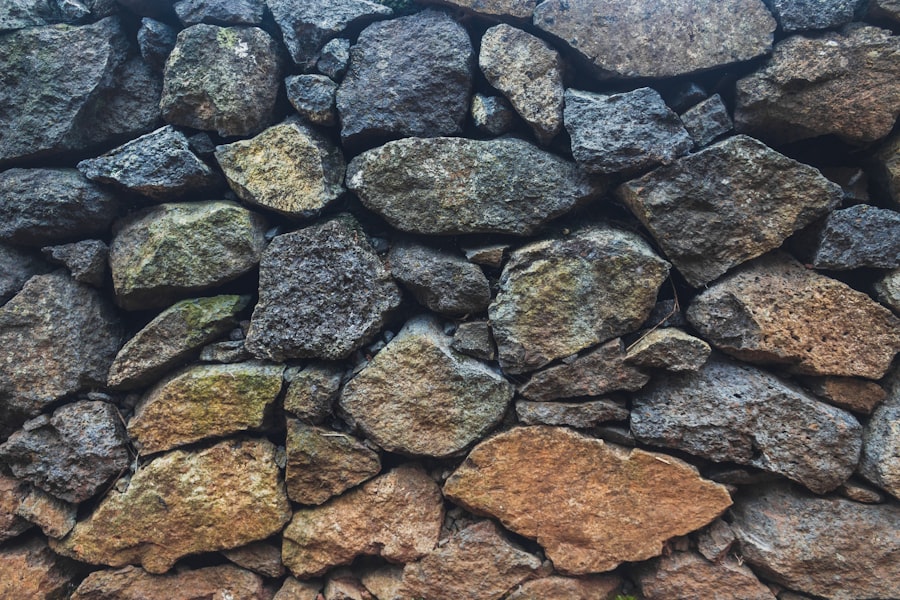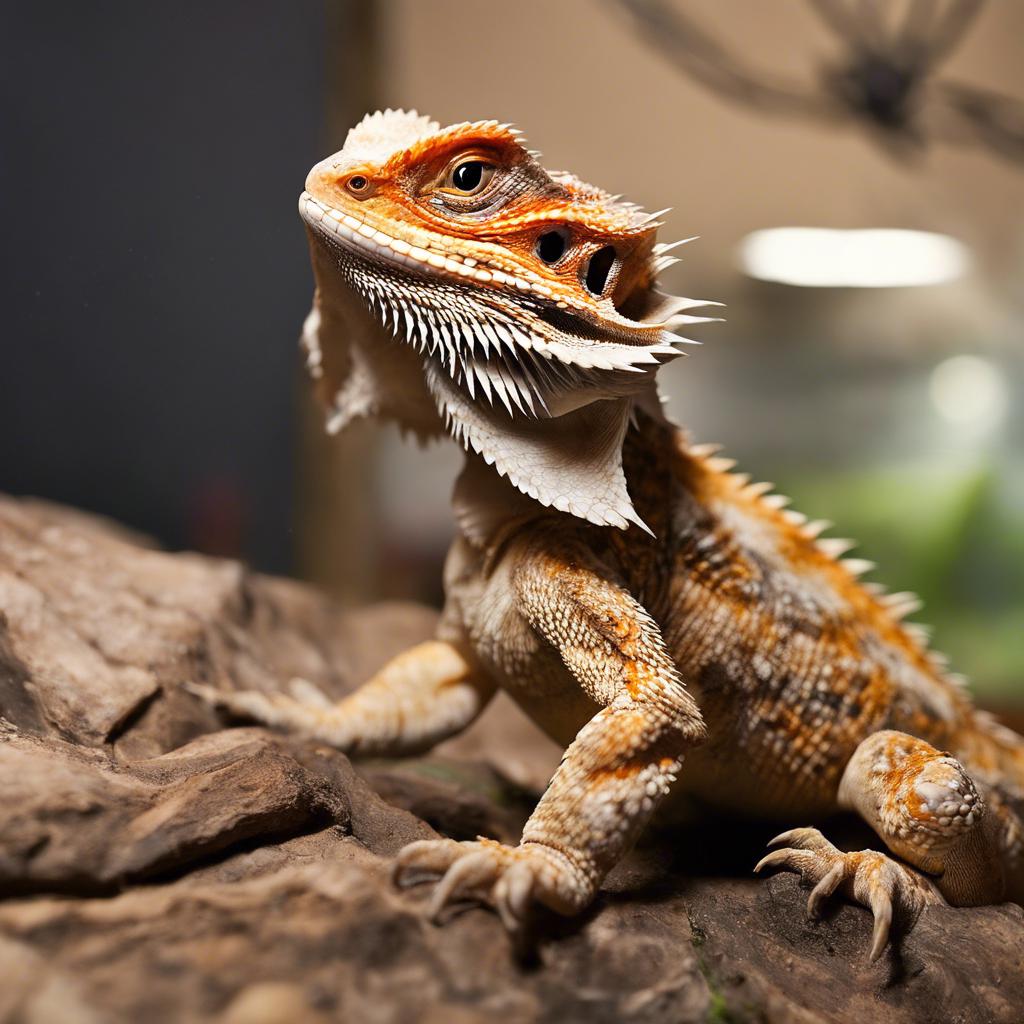Maintaining optimal humidity levels is crucial for the health and well-being of bearded dragons. These reptiles require specific environmental conditions to thrive, and humidity is an important factor to consider. In this article, we will explore the ideal humidity range for bearded dragons, the importance of humidity for their overall health, how to measure and maintain humidity levels, and the potential dangers of high humidity. By understanding the role of humidity in bearded dragon care, you can ensure that your pet remains happy and healthy.
Key Takeaways
- Maintaining optimal humidity levels is crucial for the health of bearded dragons.
- The optimal humidity level for bearded dragons is between 30-40%.
- Humidity is important for bearded dragons because it helps with shedding and respiratory health.
- To measure bearded dragon humidity, use a hygrometer.
- To increase humidity for bearded dragons, mist their enclosure or add a humidifier.
Optimal Humidity Level for Bearded Dragons
The ideal humidity range for bearded dragons is between 30% and 40%. This range mimics the conditions of their natural habitat and allows them to maintain healthy skin and respiratory function. Consistency in humidity levels is also important, as drastic fluctuations can cause stress and health issues for these reptiles.
Why is Humidity Important for Bearded Dragons?
Humidity plays a crucial role in maintaining healthy skin and respiratory function in bearded dragons. These reptiles have a thin layer of skin that is prone to drying out if the humidity levels are too low. Dry skin can lead to shedding problems and discomfort for your pet. On the other hand, high humidity levels can create a damp environment that promotes the growth of bacteria and mold, which can lead to respiratory infections.
Proper hydration is also essential for bearded dragons, and humidity levels can affect their water intake. If the humidity is too low, they may not drink enough water, leading to dehydration. Conversely, if the humidity is too high, they may not feel the need to drink as much water, which can also result in dehydration.
How to Measure Bearded Dragon Humidity
There are several methods for measuring humidity levels in your bearded dragon's enclosure. One common tool is a hygrometer, which measures the moisture content in the air. Digital thermometers with built-in hygrometers are also available and provide accurate readings of both temperature and humidity.
To get accurate readings, it is important to place the hygrometer or digital thermometer in an area of the enclosure where your bearded dragon spends most of its time. Avoid placing it near heat sources or in direct sunlight, as this can affect the accuracy of the readings.
Tips for Maintaining Optimal Humidity Levels
To maintain consistent humidity levels for your bearded dragon, there are several tips you can follow. One method is misting the enclosure with water. This can be done using a spray bottle or a reptile-specific misting system. Misting should be done once or twice a day, depending on the humidity levels in your home and the needs of your bearded dragon.
Using a humidifier is another effective way to maintain optimal humidity levels. This is especially useful if you live in a dry climate or if the humidity in your home is consistently low. Be sure to choose a humidifier that is suitable for reptile enclosures and follow the manufacturer's instructions for proper use.
Proper ventilation is also important when maintaining humidity levels. While it is necessary to provide a humid environment for your bearded dragon, you must also ensure that there is adequate airflow to prevent the growth of mold and bacteria. This can be achieved by using a mesh screen top on the enclosure or by providing ventilation holes.
How to Increase Humidity for Bearded Dragons

If the humidity levels in your bearded dragon's enclosure fall below the optimal range, there are several ways to increase them. One method is to increase the frequency of misting. You can mist more frequently throughout the day to raise the humidity levels. However, it is important not to over-mist or create a damp environment, as this can lead to respiratory issues and other health problems.
Another way to increase humidity is by adding a water dish or a humid hide to the enclosure. A water dish provides an additional source of moisture for your bearded dragon to drink from and can help increase humidity levels. A humid hide is a small enclosed area within the enclosure that is kept moist, providing a humid microclimate for your pet.
The Dangers of High Humidity for Bearded Dragons
While maintaining optimal humidity levels is important, it is equally crucial to avoid high humidity levels. High humidity can lead to respiratory infections and other health issues in bearded dragons. Excessive moisture in the air can create a breeding ground for bacteria and mold, which can cause respiratory problems when inhaled by your pet.
To prevent high humidity levels, it is important to monitor the humidity levels regularly and make adjustments as needed. If you notice that the humidity is consistently above the optimal range, you may need to reduce misting or adjust the ventilation in the enclosure.
Bearded Dragon Care: Humidity and Shedding
Humidity levels play a significant role in the shedding process of bearded dragons. Proper hydration is essential for a successful shed, and low humidity levels can lead to dry skin and difficulties in shedding. When the humidity is too low, the skin becomes dry and does not shed properly, resulting in retained shed or “stuck shed.” This can cause discomfort and potentially lead to health issues if not addressed.
To help your bearded dragon during shedding, you can increase the humidity levels in their enclosure. This can be done by misting more frequently or providing a humid hide. The increased moisture in the air will help soften the skin and facilitate the shedding process.
Bearded Dragon Care: Humidity and Respiratory Health
Humidity levels also play a crucial role in the respiratory health of bearded dragons. High humidity levels can create a damp environment that promotes the growth of bacteria and mold, which can lead to respiratory infections. These infections can cause symptoms such as wheezing, coughing, and difficulty breathing.
To prevent respiratory infections and other health issues related to humidity levels, it is important to maintain optimal humidity levels and ensure proper ventilation in the enclosure. Regularly monitor the humidity levels and make adjustments as needed to keep your bearded dragon's respiratory system healthy.
The Importance of Humidity in Bearded Dragon Care
In conclusion, maintaining optimal humidity levels is crucial for the health and well-being of bearded dragons. The ideal humidity range for these reptiles is between 30% and 40%, and consistency in humidity levels is important to prevent stress and health issues. Humidity plays a vital role in maintaining healthy skin, facilitating shedding, and promoting proper hydration.
To measure and maintain humidity levels, you can use tools such as hygrometers or digital thermometers with built-in hygrometers. Misting, using a humidifier, and providing proper ventilation are effective ways to maintain optimal humidity levels. However, it is important to avoid high humidity levels, as they can lead to respiratory infections and other health problems.
By understanding the importance of humidity in bearded dragon care and implementing proper measures to maintain optimal levels, you can ensure that your pet remains healthy and happy. Regular monitoring of humidity levels and making adjustments as needed will help provide a comfortable environment for your bearded dragon to thrive.
If you're a bearded dragon owner, you know how important it is to maintain the right humidity levels in their enclosure. Did you know that keeping the humidity at 70% at night is crucial for their health? If you want to learn more about this topic, check out this informative article on Reptile Wizard's website: Bearded Dragon Humidity 70 at Night. It provides valuable insights and tips on how to achieve the ideal humidity levels for your bearded dragon's well-being.
FAQs
What is the ideal humidity level for bearded dragons?
The ideal humidity level for bearded dragons is between 30-40% during the day and 40-50% at night.
Why is humidity important for bearded dragons?
Humidity is important for bearded dragons as it helps them shed their skin properly and maintain good respiratory health.
What happens if the humidity level is too high for bearded dragons?
If the humidity level is too high for bearded dragons, it can lead to respiratory infections and other health issues.
What happens if the humidity level is too low for bearded dragons?
If the humidity level is too low for bearded dragons, it can lead to dehydration and difficulty shedding their skin.
How can I maintain the ideal humidity level for my bearded dragon?
You can maintain the ideal humidity level for your bearded dragon by misting their enclosure with water, providing a water dish, and using a hygrometer to monitor the humidity level.
Is it necessary to maintain a specific humidity level at night for bearded dragons?
Yes, it is necessary to maintain a specific humidity level at night for bearded dragons as it helps them maintain good respiratory health and shed their skin properly. The ideal humidity level at night is between 40-50%.

